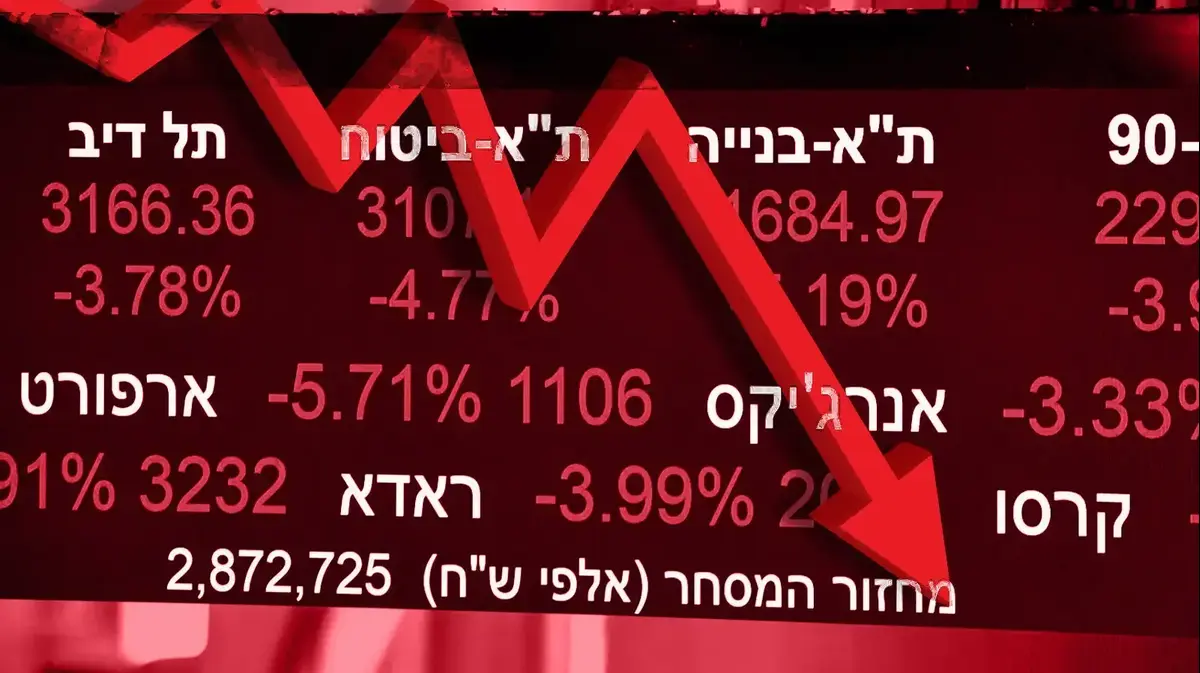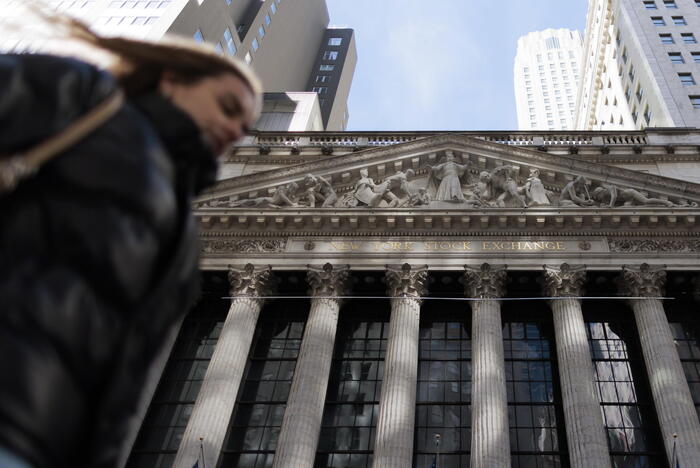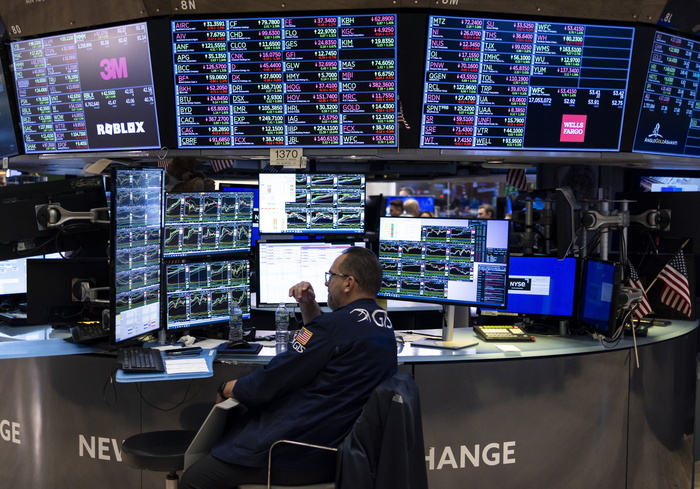Enlarge image
Stock exchange in Frankfurt am Main:
The price slide in the USA puts the Dax under pressure again
Photo: Arne Dedert / dpa
Another setback: The
Dax
closed the rather insignificant Xetra trade on Tuesday with a small plus of 0.3 percent, but slipped significantly in late trading.
The reason for the price weakness are the renewed heavy losses on the Nasdaq and the Dow Jones.
Just under an hour before the Xetra start, the X-Dax, as an indicator for the leading German index, signaled a minus of 0.54 percent to 13,160 points.
The Eurozone leading index
EuroStoxx 50
is expected to be 0.2 percent weaker.
On the New York stock market, the poor consumer mood in June had a particularly negative impact.
Consumer spending is by far the most important pillar of the entire US economy.
The revised growth outlook of the experts at Credit Suisse is now "on the edge of recession".
New inflation data in Germany
In Germany, new inflation data are due in the afternoon.
Inflation is still very high, in Germany and in the entire euro zone.
The European Central Bank (ECB) is therefore under pressure to raise interest rates, possibly even with larger steps than initially thought.
Curbing inflation while avoiding a recession is currently the central banks' dilemma.
Investors will therefore pay particular attention to
statements made by ECB President
Christine Lagarde at the central bank's monetary policy symposium in Sintra, Portugal, in the middle of the week.
To interpret the inflation data this Wednesday, a look at the place before the decimal point is enough, with 8 being the dreaded number, wrote Thomas Altmann, portfolio manager at asset manager QC Partners.
"Because an 8 in front of the decimal point would mean a new record for the reunified Germany. In addition, the 8 in front of the decimal point would fuel the discussions about larger interest rate hikes by the ECB."
The number has the potential to send new shock waves through the markets, warned Altmann.
Continental bucks the trend
After an upgrade by Exane BNP Paribas to "Outperform",
the shares of the car supplier and tire manufacturer
Continental went up pre-market, on Tradegate the plus amounted to 0.9 percent at the end of Xetra.
Pre-market, SAP
was a little lower in the wake of very weak US technology stocks.
Traders also referred to a weak quarterly outlook from the US group Progress Software.
Dow Jones and Nasdaq collapse again
In the US, a renewed sell-off began on Tuesday after a friendly start.
The
Dow Jones
closed with a loss of 1.56 percent to 30,946 points.
The technology
-heavy Nasdaq 100
even fell by 3.1 percent to 11,637 points.
Heavyweights like
Tesla
and
Amazon
lost 5 and 5.2 percent respectively in value on Tuesday.
The market-wide
S&P 500
lost 2.01 percent to 3821 points.
Data on US consumer sentiment was released shortly after the start of trading.
This clouded over more than expected in June and was as depressed as it had been at the beginning of 2021. Consumer spending is by far the most important pillar of the entire economy in the USA.
"A recession is now clearly a possibility," wrote economist Jeremy Schwartz of Bank Credit Suisse.
Growth will reflect higher borrowing costs and deteriorating sentiment, particularly in cyclical sectors.
It is fitting that consumer stocks and IT stocks were the biggest losers on Tuesday.
Schwartz predicted that private consumers would have to tighten their belts on household goods and housing while companies would have to curb investment.
US banks plan share buybacks and higher dividends
After passing the US Federal Reserve's stress test, the first major US financial institutions have presented new plans for paying out capital to their shareholders.
Morgan Stanley wants to buy back its own shares for up to $20 billion in the coming years and increase the dividend.
Morgan Stanley
rose almost one percent.
Other banking stocks such as
Goldman Sachs
,
Bank of America
and
JPMorgan
fared significantly better than the very weak overall market.
The biggest loser in the Dow was
Nike
with minus 7 percent.
Adidas
' rival
made significantly less profit in the fourth fiscal quarter due to the Covid lockdowns in China.
The quarter was mixed, judged JPMorgan analyst Matthew Boss.
In the wake of Nike,
Under Armor
shares also lost 3 percent.
Losses also in Asia
Economic pessimism also spread again on the Asian stock markets in the middle of the week.
The buying mood triggered by the easing of the corona restrictions in China the previous day subsided again.
"It is inevitable that markets will overreact to this type of news," said UBP economist Carlos Casanova.
The government in China had announced a cut in half of the quarantine requirement for inbound passengers in what observers saw as the biggest relaxation of the zero-Covid strategy yet.
This had provided a tailwind on the stock exchanges in Asia and Europe the day before.
On Wall Street, however, concerns about recession and inflation again came to the fore, which also spread to the Asian markets.
In Japan, the
Nikkei index
fell 0.9 percent to 26,805 points on Wednesday.
Australia's leading index lost 0.6 percent.
The Chinese
blue-chip index
, which hit a four-week high the day before, fell 0.9 percent.
Hong Kong
's
leading index lost 1.8 percent.
Bitcoin falls below $20,000
The world's best-known digital currency, Bitcoin, continues to be under pressure.
On the Bitstamp trading platform, the cyber currency was last listed at around 19,900 US dollars, almost 5 percent weaker than the previous day.
Bitcoin hit a record high of $69,000 in November last year.
Oil prices
down slightly
Oil prices fell slightly on Wednesday.
Market observers spoke of a slight countermovement after prices on the oil market had risen three trading days in a row.
In the morning, a barrel (159 liters) of North Sea Brent cost US$ 117.66.
That was 32 cents less than the day before.
The price of a barrel of West Texas Intermediate (WTI) was down 23 cents to $111.53.
Previously, supply concerns had given oil prices a significant boost.
In Libya, oil exports have fallen.
In the North African producing state, there have recently been failures because production was stopped due to political protests in the east of the country.
It was also announced on Tuesday evening that US oil reserves had fallen in the past week.
The industry association American Petroleum Institute (API) has reported a 3.8 million barrel drop in inventories.
Declining oil reserves usually support oil prices.
The official stock data from the US government are expected in the afternoon, which could provide new impetus for the oil market.
With news agencies











/cloudfront-eu-central-1.images.arcpublishing.com/prisa/KMEYMJKESBAZBE4MRBAM4TGHIQ.jpg)


